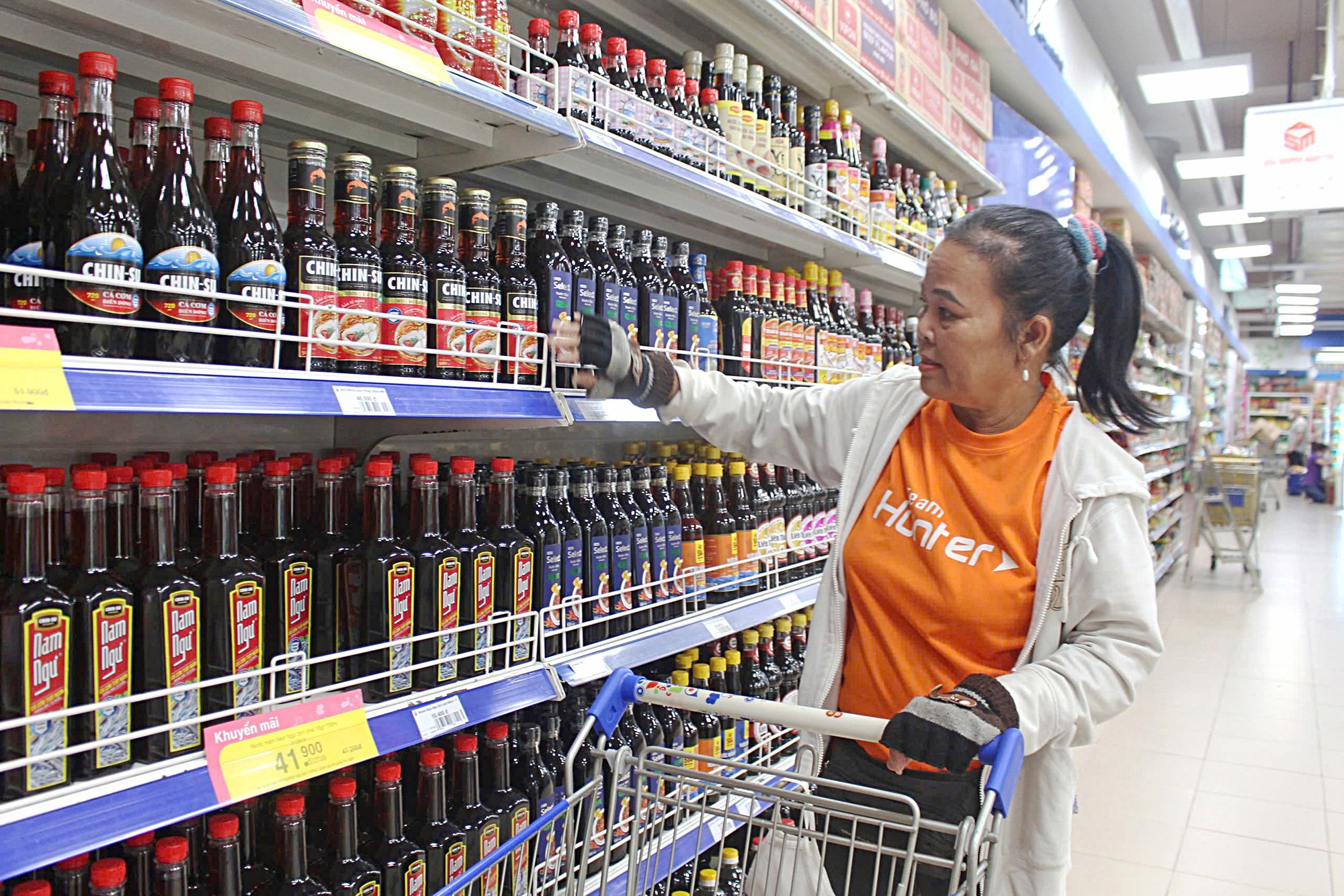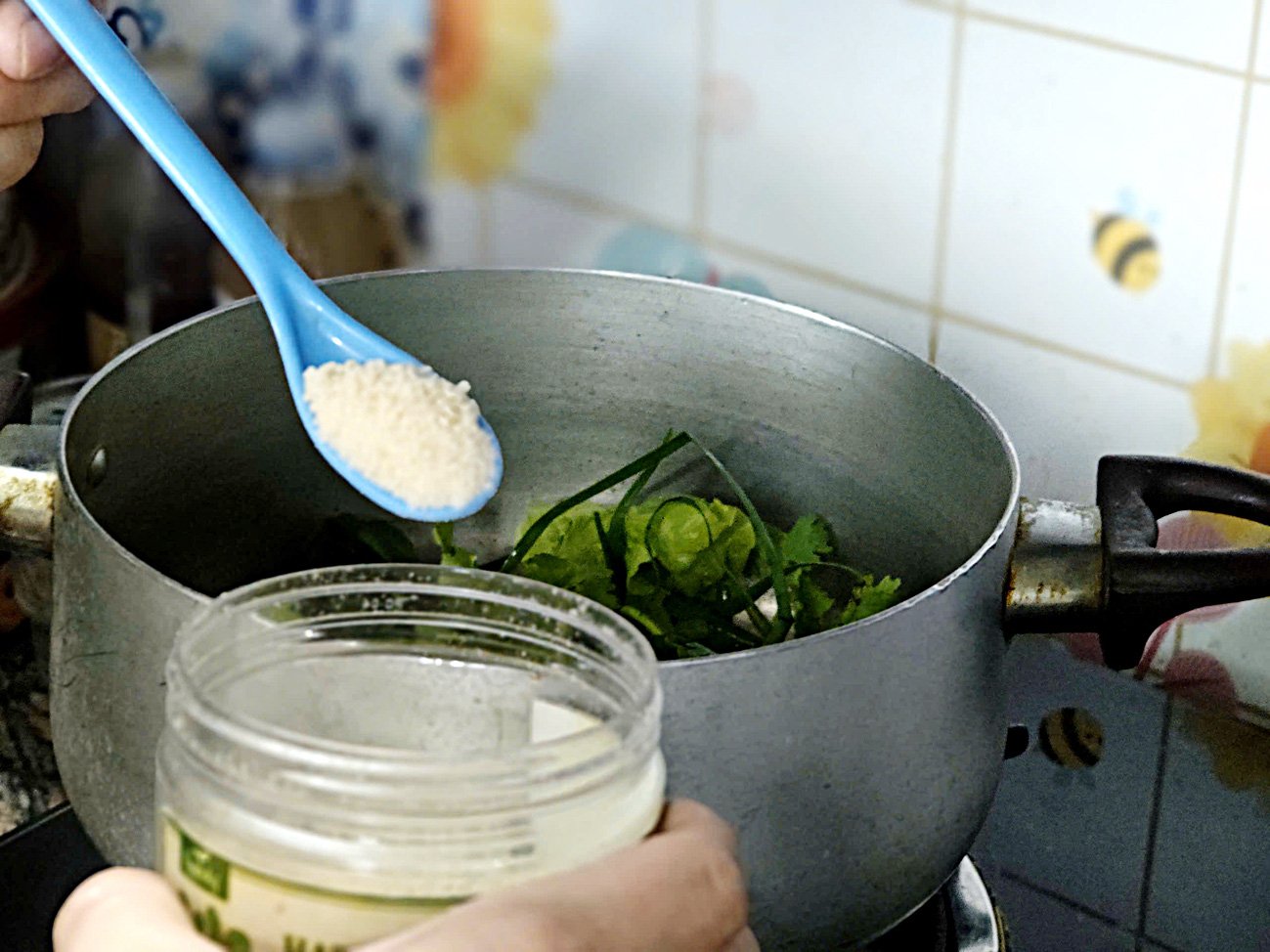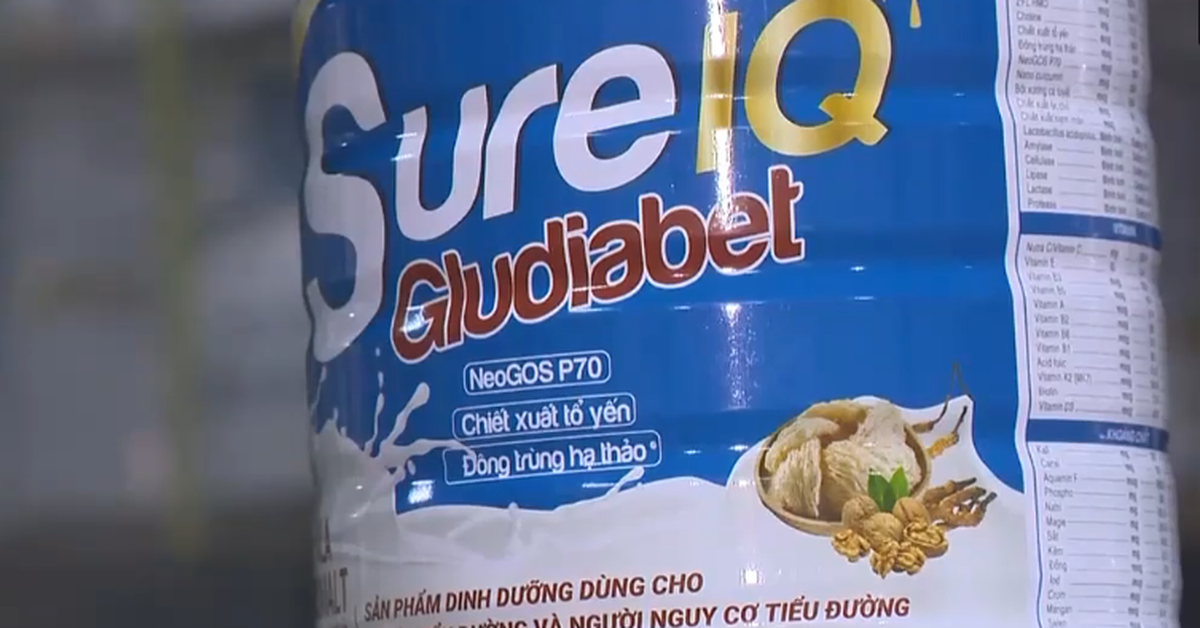Food businesses complain that production processes are disrupted, costs increase, and no one knows the effectiveness when applying regulations to add iodized salt to products.

The Ministry of Health regulates the addition of micronutrients to essential and popular foods - Illustration: D.LIEU
Recently, the Ministry of Health held a meeting to receive comments on the draft decree amending and supplementing a number of articles of Decree 09 on fortifying micronutrients in food. It stipulates that food processing enterprises (for domestic consumption) must use iodine-fortified salt, vitamin A in cooking oil, and zinc and iron in wheat flour.
However, food businesses complain that production is disrupted, costs increase, and no one knows the effectiveness when applying the regulation of adding iodized salt to products.
Vietnam is still among the 26 countries with iodine deficiency.
According to the Ministry of Health, in 2021, according to the Global Network for the Prevention of Iodine Deficiency Disorders, Vietnam is among the remaining 26 countries in the world with iodine deficiency. Currently, only 27% of households use qualified iodized salt, while the World Health Organization (WHO) recommends over 90%.
The median urinary iodine index and the household index using iodized salt that meets disease prevention standards are both at the lower risk level and do not meet WHO recommendations. The report of the Central Endocrinology Hospital and the Institute of Nutrition said that no cases of iodine excess have been recorded.
The Ministry of Health believes that Vietnamese people have not yet achieved the recommended daily iodine intake and need to continue using iodized salt in daily meals and processed foods.
"Micronutrient deficiency is a 'hidden hunger' because the current diet of Vietnamese people does not meet the needs of essential micronutrients. Iodine deficiency in Vietnam is so serious that it has public health implications," said the Ministry of Health.
Speaking to Tuoi Tre , Dr. Tran Thi Hieu - Department of Nutrition and Dietetics, Thu Duc Regional General Hospital - said that micronutrient supplementation is included in the National Nutrition Strategy for the 2021-2030 period to improve nutrition and health for people.
Programs are being implemented well, such as giving vitamin A to children from 6-36 months, iron and folic acid supplements to pregnant women, fortifying food with micronutrients by using iodized salt, adding micronutrients to essential foods such as flour, cooking oil, fish sauce, etc.
"Micronutrients should be added to essential and popular foods according to the following principle: the food must be widely consumed such as salt, cooking oil, and wheat flour, ensuring safe dosage, reasonable cost, easy access and universality. If it is too expensive, it will be difficult for the majority of people to access," Dr. Hieu explained.
Selective or comprehensive?
According to the Ministry of Health, the micronutrient content added to food will be calculated in national technical regulations to meet about 30% of the body's missing needs, in very small amounts (in micrograms or milligrams), necessary for growth, development and maintenance of life for the human body.
Many people wonder whether mandatory micronutrient fortification of foods will lead to micronutrient excess or related diseases? Especially for communities that do not have micronutrient deficiencies, is it necessary?
The Ministry of Health believes that mandatory micronutrient fortification of food for public use does not cause excess micronutrients in the human body or cause disease, even for people living in areas without micronutrient deficiencies.
According to Dr. Roland Kupka - UNICEF nutrition advisor for East Asia and the Pacific, WHO also said that fortifying foods with micronutrients helps provide for most people at risk of deficiency without causing the risk of over-absorption, or causing side effects for the general community or for specific groups.
"Vietnamese people still lack important vitamins and minerals across different age groups, undermining economic and human development. Massive food fortification is an intervention that benefits many different community groups.
We recommend mandatory nutrient fortification of cooking oil, flour and salt to address the vitamin and mineral deficiencies that are currently prevalent in Vietnam," Dr. Roland Kupka emphasized.
Speaking to Tuoi Tre , food expert Vu The Thanh affirmed that iodine supplementation is necessary for public health in general and for children and pregnant women in particular. However, he also expressed concerns about the regulation of "covering" iodine in all types of food consumed domestically and recommended that more specific research be done.
Mr. Thanh said that currently all countries have iodine supplementation policies, however, this supplementation depends on the actual situation, level of intellectual development and economic conditions of each country.
"They will add it to foods that contain a lot of salt and people's demand for that product is high. The iodine coverage policy does not mean that all industrial foods must use iodized salt, because it will affect the quality of the product or after processing, the addition is no longer meaningful.
For example, baked goods using wheat flour such as bread, biscuits... use iodized salt, because iodine can enhance the properties of gluten, but specific testing with the manufacturing enterprise is required because after heating, there must be a significant residue left in the finished product, otherwise using iodized salt is useless.
Iodine supplementation in food is necessary for public health. However, we should not copy the 'comprehensive micronutrient coverage' solution of other countries for Vietnam. We need to choose a reasonable solution so as not to affect product quality, business competitiveness, and consumer choice," Mr. Thanh analyzed.
He also said that there should be research on the effects of iodized salt on people with hyperthyroidism. If all products contain iodine, it will affect patients undergoing treatment.
At the same time, it is necessary to classify products that encourage and products that limit the use of iodine. Adding iodine to mass-processed products increases business costs, affects the sensory value of traditional products, causing difficulties for businesses.
The Ministry of Health said it is ready to coordinate with businesses to conduct field research at production facilities that use iodized salt in food processing to clarify the effects of iodized salt on the businesses' products.
In case scientific evidence shows that the use of iodized salt in food changes the color, taste or has negative effects on consumers' health, the Government will be asked to exclude these products in the decree.
Food fortification: is the cost reasonable?

The Ministry of Health regulates the use of iodine-fortified salt - Illustration: D.LIEU
According to the Ministry of Health, in Vietnam, many micronutrient-fortified products have been on the market for a long time, such as salt; iodine-fortified seasoning powder; cooking oil and seasoning powder fortified with vitamin A; fish sauce and seasoning powder fortified with iron; seasoning powder fortified with zinc; wheat flour fortified with iron and zinc...
The solution to diversifying meals is estimated to cost about $1,148 per person per year. But the solution to supplementing micronutrients by oral route is cheaper at $11.40 per person per year.
Both of these solutions can quickly and promptly address micronutrient deficiencies. However, the government cannot allocate such a large budget. People, especially the poor, cannot access these solutions.
The Ministry of Health estimates that fortifying food with micronutrients costs only $0.06 per person per year. In addition to the advantages of low cost and convenience, it also has the advantage of being widely applicable to the community.
The Ministry believes that businesses are responsible for social responsibility with the State in ensuring public health. Businesses will recover production costs by calculating them into product prices and product prices will not increase significantly.
 Businesses complain about difficulties due to regulations on iodine fortification in salt
Businesses complain about difficulties due to regulations on iodine fortification in saltSource: https://tuoitre.vn/them-i-ot-vao-thuc-pham-chon-loc-hay-bat-buoc-toan-bo-20241114221924489.htm



![[Photo] Prime Minister Pham Minh Chinh chairs the Government's special meeting on law-making in April](https://vstatic.vietnam.vn/vietnam/resource/IMAGE/2025/4/13/8b2071d47adc4c22ac3a9534d12ddc17)




























![[Photo] Closing of the 11th Conference of the 13th Central Committee of the Communist Party of Vietnam](https://vstatic.vietnam.vn/vietnam/resource/IMAGE/2025/4/12/114b57fe6e9b4814a5ddfacf6dfe5b7f)





























































Comment (0)